
Paul Brand 10am - 12pm
15 November 2023, 08:36 | Updated: 15 November 2023, 11:05
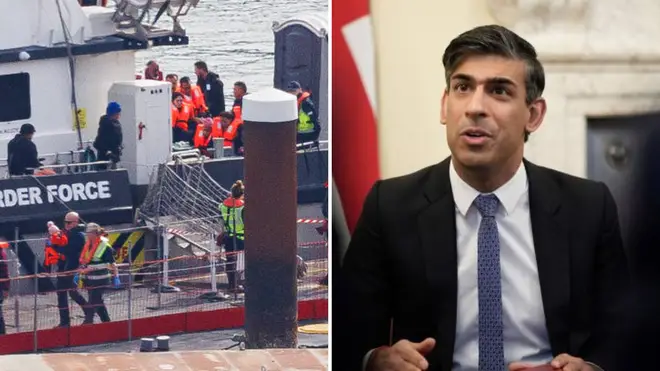
The Supreme Court ruled that the government's plan to send migrants to Rwanda is unlawful, in a huge moment for Rishi Sunak's administration.
Migrants crossing the English Channel on small, often dangerous boats, is an important issue for the government for both electoral and moral reasons.
More than 100,000 people have made the dangerous crossing of one of the world's busiest shipping lanes since 2018.
The crossings are operated by people smuggling gangs, and the boats provided are often not sea-worthy. Dozens of people have died, and many more have had to be rescued by British or French officials.
Many people in the UK want lower immigration, and the Conservatives have promised to cut the numbers coming in.
But a record 606,000 entered the country last year. The small boats, although they bring a relatively small proportion of the overall migrant numbers, are a highly visible representative of what some see as uncontrolled migration.
The Rwanda plan was largely a reaction to these two forces.
Read more: 'You'd change your mind about Rwanda if you visited': Boris defends controversial plan
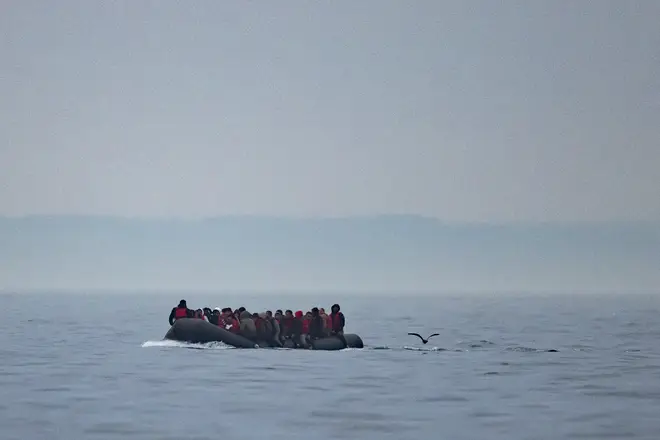
The full judgement went as follows:
These appeals arise out of claims brought by individual asylum seekers ("the claimants") who travelled to the UK in small boats (or, in one case, by lorry).
The Home Secretary declared the claimants' claims for asylum to be inadmissible, intending that they should be removed to Rwanda where their asylum claims would be decided by the Rwandan authorities.
Her decisions were made in accordance with the Migration and Economic Development Partnership ("MEDP") between the UK and Rwanda, recorded in a Memorandum of Understanding and a series of diplomatic "Notes Verbales".
Under paragraphs 345A to 345D of the Immigration Rules, if the Home Secretary decides that an asylum claim is inadmissible, she is permitted to remove the person who has made the claim to any safe third country that agrees to accept the asylum claimant.
On the basis of the arrangements made in the MEDP, the Home Secretary decided that Rwanda was a safe third country for these purposes.
This is "the Rwanda policy". The claimants (and other affected asylum seekers) challenged both the lawfulness of the Rwanda policy generally, and the Home Secretary's decisions to remove each claimant to Rwanda.The Divisional Court held that the Rwanda policy was, in principle, lawful.
However, the way in which the Home Secretary had implemented the policy in the claimants' individual cases was procedurally flawed.
Accordingly, her decisions in those cases would be quashed and remitted to her for reconsideration.The appeal to the Court of Appeal concerned only the challenges to the lawfulness of the Rwanda policy generally.
By a majority, the Court allowed the claimants' appeal on the ground that the deficiencies in the asylum system in Rwanda were such that there were substantial reasons for believing that there is a real risk of refoulement.
That is, a real risk that persons sent to Rwanda would be returned to their home countries where they face persecution or other inhumane treatment, when, in fact, they have a good claim for asylum.In that sense Rwanda was not a safe third country.
Accordingly, unless and until the deficiencies in its asylum processes are corrected, removal of asylum seekers to Rwanda will be unlawful under section 6 of the Human Rights Act 1998.
This is because it would breach article 3 of the European Convention on Human Rights, which prohibits torture and inhuman or degrading treatment.
The Court of Appeal unanimously rejected the claimants' other grounds of appeal.
The Rwanda plan was announced as a five-year trial by Boris Johnson in April 2022 to deter people from coming to live in the UK without permission.
Under the plan, anyone who has come into the UK after January 1 last year would have been deported to Rwanda, a small country in east Africa 4,000 miles away from the UK. They would then have their asylum claim processed there - to stay in Rwanda.
If this was rejected, they could stay there on other grounds, or apply to stay in another 'safe third country'.
The UK paid the Rwandan government more than £100 million as part of the plan.
Read more: Rishi Sunak vows to press on with Rwanda policy 'regardless' of Supreme Court ruling
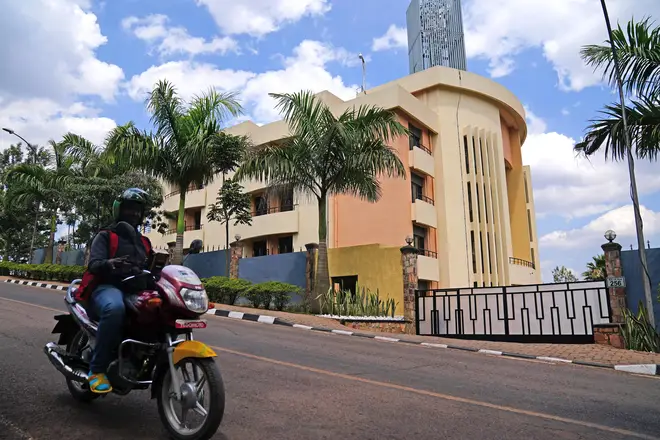
No one has been sent to Rwanda yet, despite the plan being announced 18 months ago.
The first deportation flight, in June 2022, was blocked on legal grounds after a challenge by lawyers for several asylum seekers, as well as charities Care4Calais and Detention Action, and the Public and Commercial Services union (PCS).
The Illegal Migration Act, passed in July this year, meant that the asylum claims of anyone who arrives by small boat could have their asylum claim deemed "inadmissible".

James O'Brien speaks to Carine Kanimba, whose father is the subject of the film 'Hotel Rwanda'
The Rwanda plan has been subject to legal challenge almost since the start.
Lawyers for several migrants brought the case to the High Court, where judges ruled in favour of the government last December. But the court also said that ministers had acted unfairly in the individual cases of eight migrants.
But the Court of Appeal then ruled two-to-one against the government, deciding that people sent to Rwanda would be at risk of being sent home, where they could face persecution.
That would mean the policy was not in line with the UK's Human Rights Act, which incorporates the European Convention on Human Rights.

Suella Braverman is confident in the lawfulness of Rwanda plan
The government then took the case to the Supreme Court. Several asylum seekers are also appealing for the judgement to be ruled unlawful on other grounds.
The judges gave their ruling on Wednesday at 10am, backing the Court of Appeals - meaning that the plan is unlawful.
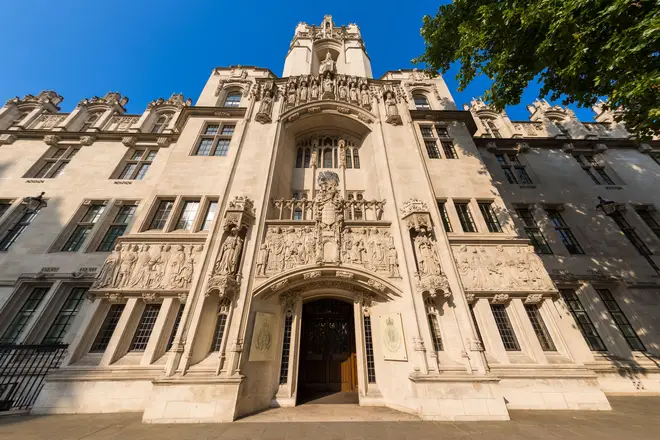
Rishi Sunak has made "stopping the boats" a key part of his pitch to British voters.
While small boats numbers are down so far this year compared to 2023, the Rwanda plan being ruled unlawful, is seen as a blow to the Prime Minister.
The government has said that it has other "levers" to bring down irregular migration.
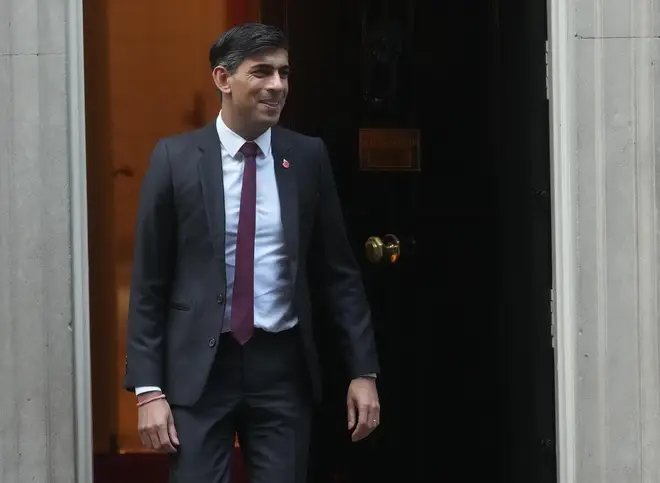
The Prime Minister will face growing pressure from the right of his party to leave the ECHR after the ruling went against the government.
Ms Braverman, fired as Home Secretary on Monday, accused the prime minister of having "no credible backup plan" to the Rwanda scheme.
“I can only surmise that this is because you have no appetite for doing what is necessary, and therefore no real intention of fulfilling your pledge to the British people,” she said.
No10 expects Ms Braverman to launch a rebellion against the government, though strategists only expects around a dozen Tory MPs to back her.
According to political scientist Tim Bale, Ms Braverman might be "overestimating how MPs will rally behind her".
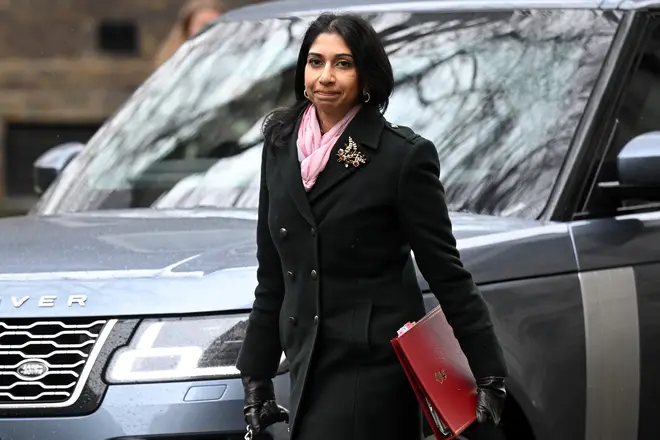
Rishi Sunak has said he remains committed to stopping small boat crossings after the ruling.
“We have seen today’s judgment and will now consider next steps," Mr Sunak said .
“This was not the outcome we wanted, but we have spent the last few months planning for all eventualities and we remain completely committed to stopping the boats.
“Crucially, the Supreme Court – like the Court of Appeal and the High Court before it – has confirmed that the principle of sending illegal migrants to a safe third country for processing is lawful. This confirms the Government’s clear view from the outset.
"Illegal migration destroys lives and costs British taxpayers millions of pounds a year. We need to end it and we will do whatever it takes to do so.
“Because when people know that if they come here illegally, they won’t get to stay then they will stop coming altogether, and we will stop the boats.”
Questions have been raised about whether Rwanda is a suitable place to send migrants.
The adopted daughter of the hero depicted in the film Hotel Rwanda, about the genocide in the country, has urged Britain against sending migrants to Rwanda, which she says is ruled with an "iron fist".
Canine Kanimba told LBC's James O'Brien: "Rwanda is a dictatorship, there is one man in power who's been in power for almost 30 years and plans to be in power for another 10 years.
"He rules with an iron fist - there are no freedoms in Rwanda. And what happened to my father, his kidnapping, across international borders, and sham trial and torture, is an example of the type of country that is ruled by this government."
She added: "I would ask [British politicians] to have humanity, and to not send vulnerable people, and vulnerable refugees, to a dictatorship."
Lord Reed, delivering the Supreme Court's verdict on Wednesday, said: "The evidence shows that there are substantial grounds for believing that there is a real risk that asylum claims will not be determined properly, and that asylum seekers will therefore be at risk of being returned directly or indirectly to their country of origin."